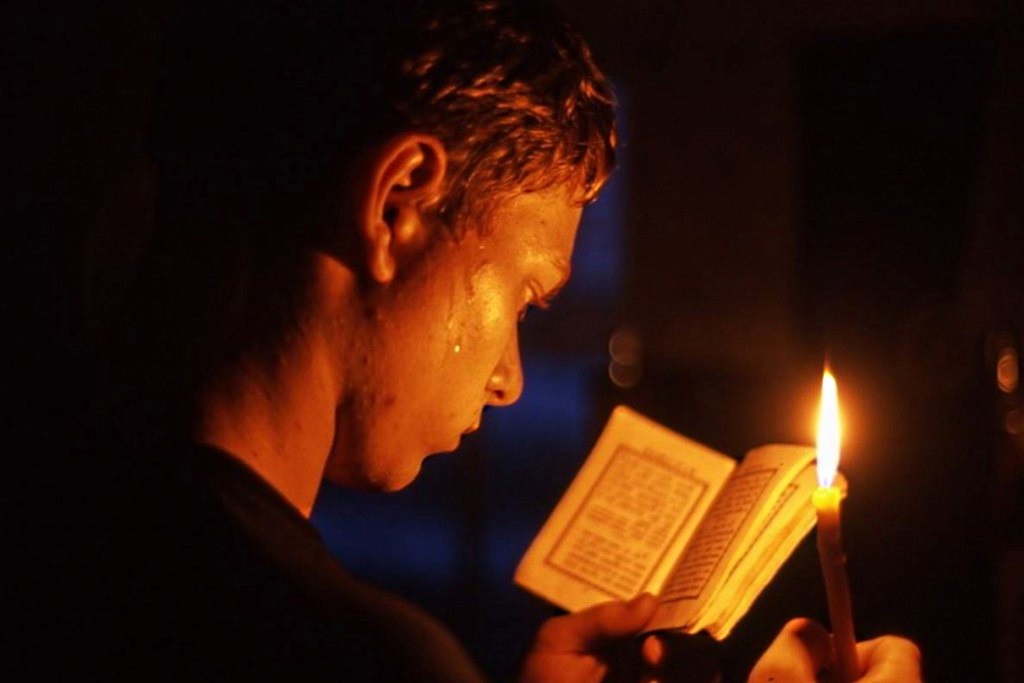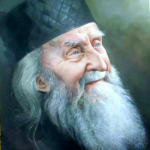
By Elder Sophrony of Essex
Prayer is infinite creation, far superior to any form of art or science. Through prayer we enter into communion with Him that was before all worlds. Or, to put it in another way, the life of the Self-existing God flows into us through the channel of prayer. Prayer is an act of supreme wisdom, of all-surpassing beauty and virtue. Prayer is delight for the spirit. But the circumstances accompanying this creative work are complex. Time after time we experience an eager upsurge towards God, followed repeatedly by a falling away from His Light. Time and again we are conscious of the mind’s inability to rise to Him. There are moments when we feel ourselves on the verge of madness. Pain forces the cry, “Thou didst give me Thy precept of love, which I accept with all my being, but there is no strength in me for this love. Thou Who art love, come and abide in me, and perform in me all that Thou hast enjoined, for Thy commandment exceeds my powers. My mind is too frail to comprehend Thee. My spirit cannot see into the mysteries of Thy life. I desire to do Thy will in all things but my days go by in perpetual conflict. I am tortured by the feat of losing Thee because of the evil thoughts in my heart; and this feat crucifies me. I sink. Lord, save me, as Thou didst save Peter who dared to walk on the water, to go to Thee.”1
At times, prayer seems over-slow in bringing results, and life is so short. Instinctively we cry, “Make haste unto me.” But He does not always respond at once. Like fruit on a tree, our soul is left to scorch in the sun, to endure the cold wind, the scorching wind, to die of thirst or be drowned in the rain. But if we do not let go of the hem of His garment, all will end well.
It is vital to continue in prayer for as long as we can, so that His invisible strength may penetrate and enable us to resist every destructive influence. And with the increase of this strength in us comes the joy of hope in final victory.
Prayer assuredly revives in us the divine breath which God breathed into Adam’s nostrils and by virtue of which Adam “became a living soul.”2 Our spirit, regenerated by prayer, begins to marvel at the sublime mystery of being. The mind is filled with wonder. “Being, how is this possible?” And we echo the Psalmist’s praise of the wondrous works of the Lord. We apprehend the meaning of Christ’s words, “I am come that [men] might have life, and that they might have it more abundantly.”3 “More abundantly”—this is indeed so.
But again and again I find myself reflecting that life is full of paradox, like all the Gospel teaching. “I am come to send fire upon the earth; and how I wish that it were already kindled!”4 All we sons of Adam must go through this heavenly flame that consumes our deathly passions. Otherwise we shall not see the fire transformed into the light of new life, for its is not light that comes first, and then fire: in our fallen state burning must precede enlightenment. Let us, therefore, bless the Lord for the consuming action of His love. We do not know altogether but we do at least know “in part” that there is no other way for us mortals to become “children of the resurrection,”5 children of God, to reign together with Christ, the only-begotten son of God. However painful this re-creating may be, however it may distress and lacerate—the process, agonizing as it is, in the end will be a blessed one.
True prayer uniting us with the Most-High is nothing other than light and strength coming down to us from heaven. In its essence it transcends our plane of existence. . . . True prayer to the true God is contact with the Divine Spirit which prays in us. The Spirit gives us to know God. The Spirit draws our spirit to contemplation of eternity. Like grace coming down from on High the act of prayer is too much for our earthly nature and so our mortal body, incapable of rising into the spiritual realm, resists. The intellect resists because it is incapable of containing infinity, is shaken by doubts and rejects everything that exceeds its understanding. The social environment in which I live is antagonistic to prayer —it has organized life with other aims diametrically opposed to prayer. Hostile spirits cannot endure prayer. But prayer alone can restore the created world from its fall, overcoming its stagnation and inertia, by means of a mighty effort of our spirit to follow Christ’s commandments.
The struggle for prayer is not an easy one. The spirit fluctuates—sometimes prayer flows in us like a mighty river, sometimes the heart dries up. But every reduction in our prayer-strength must be as brief as possible. Not infrequently, to pray means telling God of our disastrous state: of our weakness and despondency, our doubts and fears, the melancholy, the despair—in brief, everything connected with our condition. To pour it all out, not seeking to express it elegantly or even in logical sequence. Often this method of approach to God turns out to be the beginning of prayer as communion.
FOOTNOTES
1. Cf. Matt. 14: 28-31.
2. Gen, 2: 7
3. John 10:10.
4. Luke 12, 49.
5. I Cor. 13:9.

About the Author

- Elder Sophrony of Essex was born (1896) and raised in Russia, where even as a young boy he experienced the Uncreated Light. After studying art and theology in Paris, he began his sojourn as a monk on Mt Athos in 1926 and became a close disciple of St Silouan the Athonite. In 1947 poor health forced him to leave the cave on Mt Athos where he had been living, and he returned to Paris, where he wrote his celebrated biography of St Silouan. In 1959 he founded the Monastery of St John the Baptist at Tolleshunt Knights, Essex, England, where he reposed in 1993. On Prayer was published posthumously.
- February 11, 2018ArticlesPrayer: An Ever-New Creation